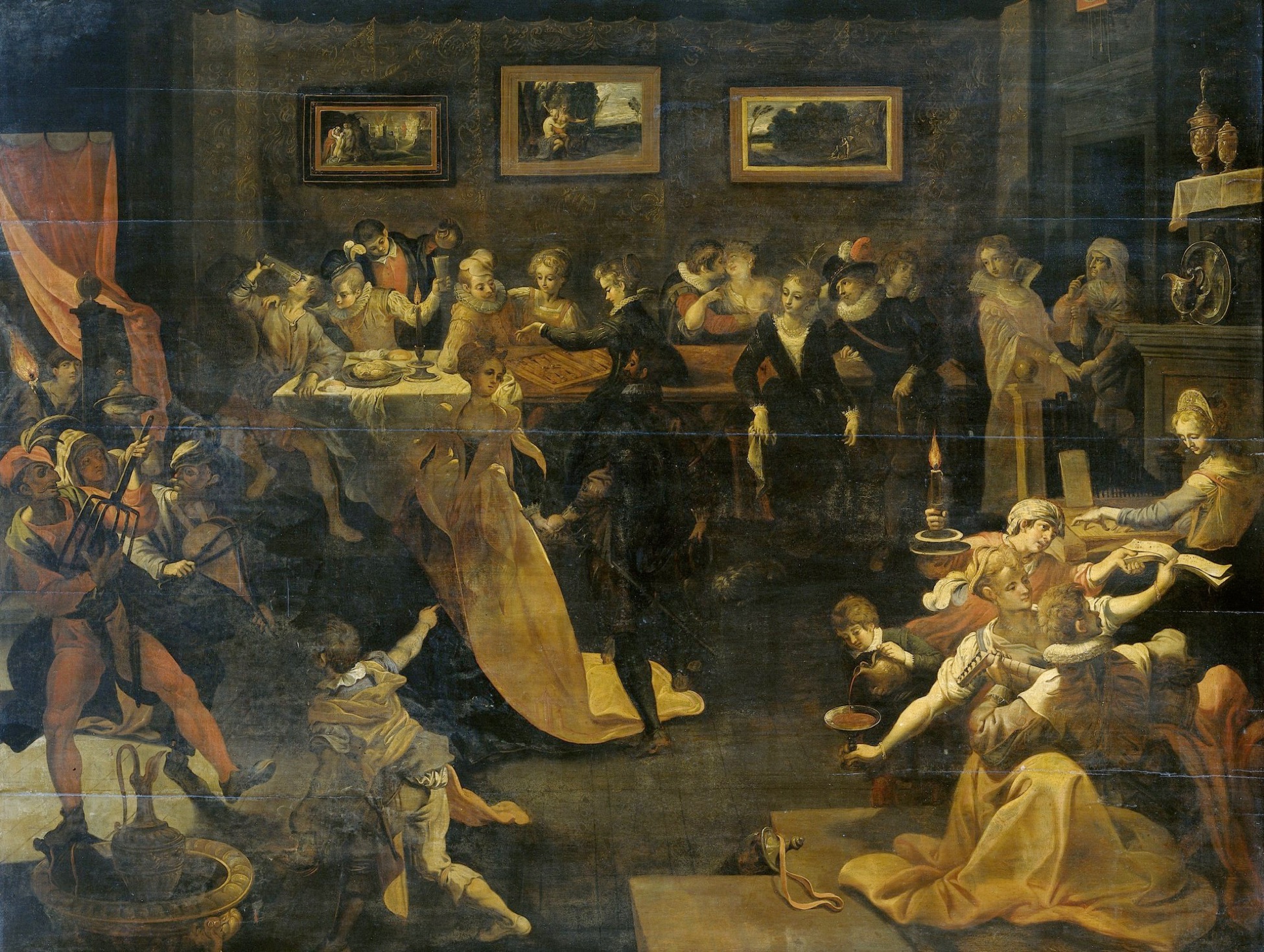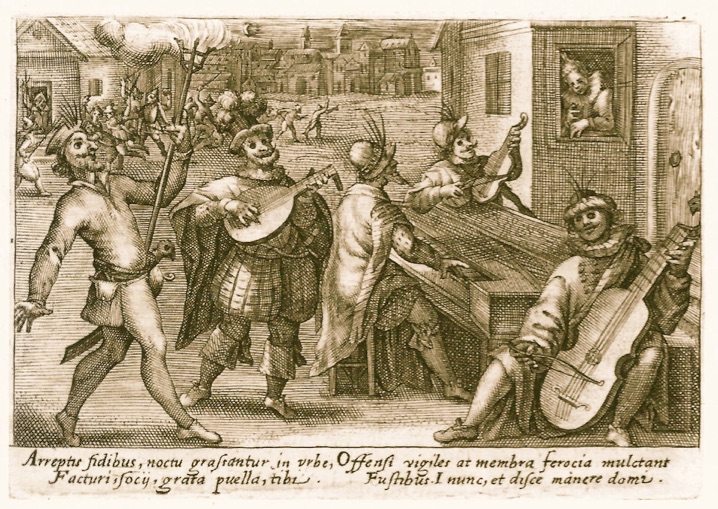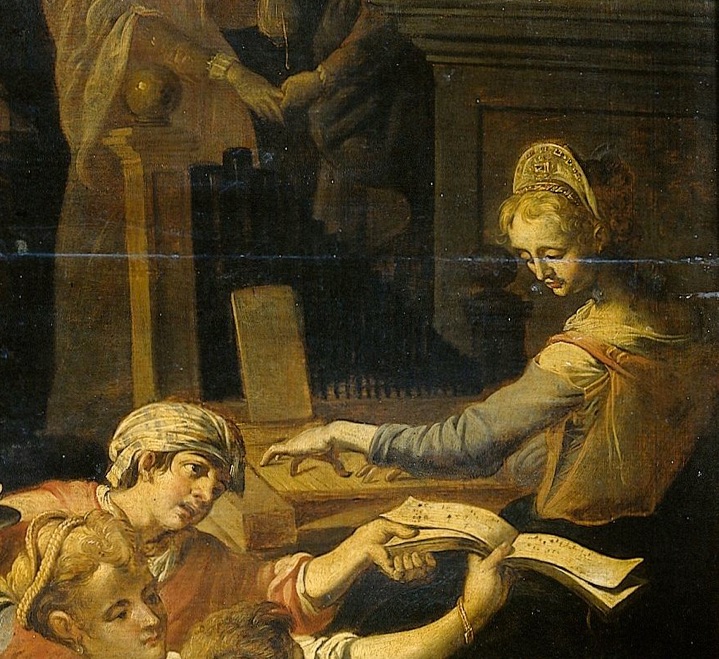(Jan W.J. Burgers - The Lute in the Dutch Golden Age)
In the Golden Age, music was so prominently present that, just like today, people complained about the noise. We find an interesting expression of this volume of emblems ‘Nieuwen Jeucht Spieghel’ 1617 in which the phenomenon serenade is made fun of. When a man wished to court a lady, he would often use music to do so, and the best way was to hire a professional music ensemble. The engraving in ‘Nieuwen Jeucht Spieghel’ 1617 shows what is probably a lifelike representation of such a spectacle (including the musicians’ extravagant clothes and masks): we see how a lutenist, a violinist/fiddler, a stringed bass player and even a virginal were assembled, all for the entertainment of the attentively listening woman in the window.
The accompanying poem, however, complains of the habit of making music, particularly at night and in disguise, thereby annoying good citinzens and disturbing their sleep.
‘tMisbruyck van Nacht oft Dach,
Baert smerte met gheklach.
Alsmen by Nachte loopt vermomt
over de Straten,
Ende ontwaect alle Mensch’ met
gesangh, en met spel,
Alsmen moetwillich doet aen, de
Borghers ghequel,
‘tSchijnt wel een vreucht te zijn, maer
d’eynd’ is seer te haten,
Al het spel en ghesanck en mach u
doch niet baten,
Als de Nacht-wacht verneemt u
broodroncken opstel,
Maer Klippels vallen daer seer dapper
op u Vel,
Ist dan niet wel ghemomt, als de
Huyt is vol gaten?
Ey liever! blijft doch tHuys, oft wilt
ghy u ghemoet
Eerlijck verblyden, gaet ende dyn
Snaren doet
Klincken binnen de Deur uwer
Liefster Vriendinnen.
Verborghen sy u vreucht, verborghen
sy u minnen,
Misbruyct den Nacht ooc niet, zoo
blijft uwen naem goet,
Ende meucht zoo met lof, u soete
Lief ghewinnen.





















